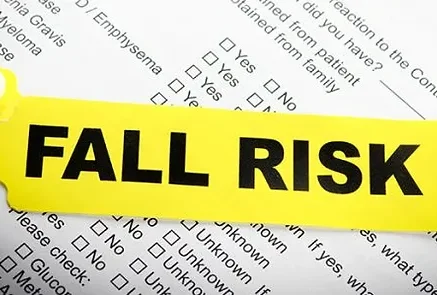When you’re a kid and your parents make you brush your teeth, you often meet it with reluctance. Depending on your age, maybe tears. Most kids try to get out of brushing their teeth, as it just seems like a chore.
For the most part, when you get older, you start to…if not enjoy it, recognize the medical and social importance of oral health. And so brushing and flossing become normal parts of your daily routine. This is especially true as dental care has improved and proper care became expected.
But for older adults, oral hygiene and dental care often become more difficult. As routines break down, mobility is compromised, and less time is spent on personal care, brushing and flossing too often takes the back seat. And this can be dangerous: teeth and gums are already weaker in older adults, and disease can strike more quickly and be more harmful.
There are many dental health issues that come with aging and many intersecting comorbidities that can contribute to deteriorating oral health. That’s why it is extremely important that older adults understand the risks and dangers of poor care, continue to see their dentist, and practice daily oral hygiene. You might not still get rewarded by your parents, but it is still just as rewarding.
Here are a few reasons why oral health should be of particular importance for the elderly.
Infections Can be Deadly
Oral infections can lead to trouble such as pneumonia, root decay, gum disease, and heart disease. Some of these infections, like root decay, are mostly just annoyingly painful, but others, like pneumonia, can be deadly.
Higher Risk of Disease
If you don’t take care of your teeth, your blood sugar levels may go up, potentially leading to diabetes. If you have an infection in your mouth or gums, the bacteria may carry to your lungs or your heart. Good oral hygiene is a great way to reduce the risk of disease.
Dry Mouth
Many older adults take several different medications, many of which can cause dry mouth. The mouth needs saliva to protect the teeth from decay and prevent oral infections. If left untreated, chronic dry mouth can lead to gum disease and cavities. Also, because these conditions make it difficult to eat, you may develop malnutrition.
Gum Disease
23 percent of people between the ages of 65 to 74 have severe gum disease. Gum disease is dangerous, not only because the infection may spread elsewhere in the body, but because it can make eating solids and even drinking fluids painful.
Oral Cancer
Oral cancer’s first warning sign is usually a growth or a sore in the mouth that does not heal. This type of cancer is strongly linked to smoking and chewing tobacco. The survival rate of oral cancer is good with early detection.
Specific Ailments Linked to Oral Health
Many conditions are closely related to poor oral care. Maintaining a good oral health routine can help older adults treat and possibly eliminate instances of certain illnesses. Here are a few of the most common ailments linked to oral health.
Pneumonia
When you have an infection in your mouth, or when there are remaining particles of food in your mouth, the food and bacteria can be aspirated into the lungs. This process can lead to an infection of the lungs, also known as pneumonia.
Heart Disease
An infection in the mouth can travel to the inner lining of the heart. This condition is known as endocarditis. Although endocarditis can be treated with antibiotics, it does put undue strain on the heart.
Hypertension
Having an infection anywhere in the body — including the mouth — can raise blood pressure. Get your blood pressure back to normal by talking to your doctor and your dentist. Your doctor may want to put you on medication for a while until he or she is sure the infection has cleared up, and your blood pressure is under control.
So how do you prevent these issues? By practicing good oral health.
The Good News about Dental Care For Older Adults
Here is some good news about oral health for older adults: just because it might be more important to take care of your teeth doesn’t mean it is significantly harder. It’s more or less the same process for every age:
- Drink fluoridated water.
- Brush your teeth with fluoridated toothpaste twice a day.
- Floss at least once a day, if possible.
- Avoid any form of tobacco. It is never too late to quit, and the benefits are quick to see.
- Limit alcohol consumption.
- Listen to caregivers.
- Find a routine that works for you.
- Do not ignore dry mouth. It’s not just a small thing, but a potentially serious health issue.
- Visit your dentist on a regular basis, meaning at least one exam per year and ideally two cleanings. If you have periodontal disease, you may need more frequent and deeper cleanings. Even if you have no natural teeth, dentists can check for lesions, growths, and other signs of cancer or other issues.
Dr Rahul Padmanabhan is a consultant in Geriatrics and Gerontology based in Coimbatore, Tamil Nadu. He is currently the medical director for Dr Rahul’s Elder Care. He is an expert in dementia care and has designed memory care programs to help elders and their families manage elders with dementia at home. We are one of top providers of Geriatric Care in Coimbatore. Dr Rahul’s Elder Care is at No 33, Alagesan Road No 2, Sai Baba Colony, Coimbatore. For more information, visit www.drrahulseldercare.com or call +91-7871111247.



